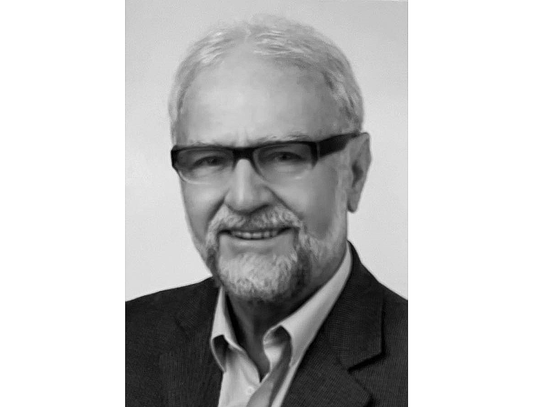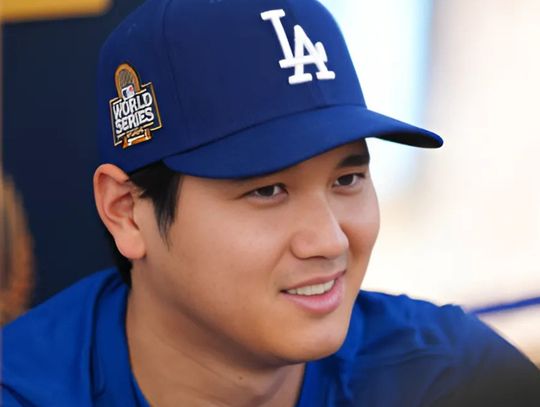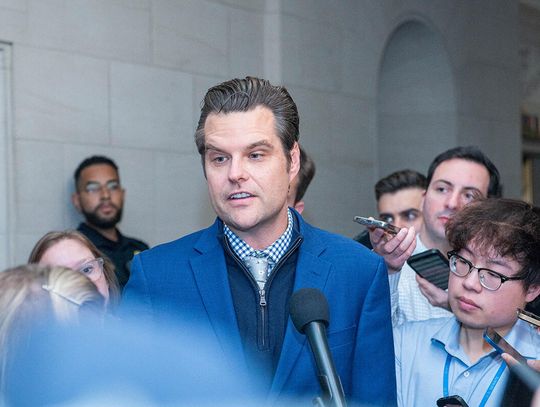Nigdy za bardzo nie interesowała mnie prawdziwa broń.
Oczywiście, kiedy byłem dzieckiem, które dorastało w północno-zachodnim Chicago, zawsze lubiłem bawić się zabawkowymi pistoletami. Mój przyjaciel i ja mieliśmy pistolety z metalowymi nasadkami, które głośno strzelały, gdy pociągaliśmy za spust, a także mieliśmy pistolety wodne, które strzelały wodą. Oba modele były całkowicie nieszkodliwe, nikt nigdy nie stracił słuchu od pistoletu z metalową nasadką i nikt nigdy nie utonął, jeśli został trafiony wodą z pistoletu wodnego.
Biegaliśmy po Humboldt Park, strzelając do siebie nawzajem, bawiliśmy się w kowbojów i Indian oraz w żołnierzy i Niemców. Musiałem mieć około 6 lat, kiedy zacząłem się bawić zabawkowymi pistoletami, i prawdopodobnie miałem 13 lat, kiedy odłożyłem je, bo były zbyt dziecinne dla fajnego nastolatka, którym chciałem być.
Jedynym doświadczeniem, jakie miałem z prawdziwą bronią było coś, o czym nie lubię rozmawiać. To był jeden z najgorszych momentów w moim życiu. Miałem 21 lat i z jakiegoś powodu moi rodzice trzymali w domu broń. Nie wiem dlaczego. Pamiętam tylko, że moi rodzice dostali go od swojego przyjaciela, który poprosił ich, aby przez chwilę go popilnowali. Nigdy nie pytałem dlaczego go pilnują. Nigdy nie pomyślałem, żeby spytać. Ale był w domu. Moi rodzice trzymali go w szufladzie w sypialni.
Oto żenująca część, najgorszy moment w moim życiu.
Miałem 21 lat i bardzo kochałem pewną dziewczynę. Spotykaliśmy się od 3 lat i byliśmy zaręczeni, planując ślub tak szybko, jak tylko skończymy studia w następnym roku. Do tego małżeństwa nigdy nie doszło.
Pewnego letniego dnia przyszła do mieszkania, gdzie mieszkałem z rodzicami i powiedziała mi, że nie chce wyjść za mnie za mąż. Powiedziała, że wyprowadza się sama do San Francisco i to był nasz koniec.
Nie wiedziałem, co robić, więc poszedłem do sypialni rodziców i wyciągnąłem pistolet z szuflady, w której go trzymali. Nie wiedziałem czy był naładowany, czy nie, więc złapałem ją za ramię tak mocno, że nie mogła się wykręcić, i wycelowałem rewolwer w jej twarz – kobiety, którą kochałem i powiedziałem, że ją zastrzelę, a później zastrzelę siebie, ponieważ mnie nie kocha.
Powiedziała, że jeśli masz zamiar to zrobić, po prostu to zrób. Spojrzałem na nią i wiedziałem, że nie dam rady. Odłożyłem broń z powrotem do szuflady i patrzyłem, jak odchodzi i nigdy już nie wróci.
To było moje jedyne doświadczenie z prawdziwą bronią. Nie było to coś, do czego kiedykolwiek myślałem, że będę zdolny. Nigdy nie myślałem, że mogę zagrozić życiu innej osoby.
Ale zrobiłem to.
Kiedy ludzie pytają mnie, dlaczego sprzeciwiam się prawu noszenia broni zgodnie z drugą poprawką, to myślę właśnie o tym.
Guns and Me
I’ve never been much interested in real guns.
Of course, when I was a kid growing up on the near northwest side of Chicago, I always liked to play with toy guns. My friends and I had metal cap guns that would make a loud bang sound when you pulled the trigger, and we also had water guns that shot water. Both were absolutely harmless, no one ever lost his hearing from the bang of a cap gun, and no one ever drowned by being hit with the water from a water gun.
We’d run around Humboldt Park shooting at each other and playing cowboys and indians or GIs and Germans. I must have been around 6 when I started playing with toy guns and probably about 13 when I gave them up as being way too childish for a cool teenager like I wanted to be.
The only experience I ever had with a real gun was something that I don’t much like to talk about. It was one of the lowest points in my life. I was about 21 and for some reason my parents had a gun in the house. I’m not sure why. All I remember was that my parents got it from a friend of theirs who asked them to watch the thing for a while. I never asked why my parents were watching it. I never thought to ask. But there it was in the house. My parents kept it in a drawer in the bedroom.
Now here’s the embarrassing part, the low point in my life.
I was 21 years old, and I loved a girl very much. We had been dating for 3 years, and we had been engaged to be married as soon as we both graduated from college the next year. The marriage never happened.
One summer day, she came to the apartment where I lived with my parents, and she told me she didn’t want to marry me. She said that she was moving to San Francisco alone, and that this was the end of us.
I didn’t know what to do, so I went to my parents’ bedroom and pulled the revolver out of the drawer where they kept it. I didn’t know if it was loaded or not, and I grabbed her arm so tight she couldn’t pull away, and I pointed the revolver at the face of the woman I loved and said I’d shoot her and then I would shoot myself because she didn’t love me.
She said if you’re going to do it just do it. And I looked at her and knew that I couldn’t do it. I put the gun back in the drawer and watched her leave and never come back.
That was my only experience with a real gun. It wasn’t something I would have ever thought myself capable of. I never thought I could threaten the life of another person.
But I did.
When people ask me why I’m against the 2nd Amendments right to bear arms, I think of this.
John Guzlowski
amerykański pisarz i poeta polskiego pochodzenia. Publikował w wielu pismach literackich, zarówno w USA, jak i za granicą, m.in. w „Writer’s Almanac”, „Akcent”, „Ontario Review” i „North American Review”. Jego wiersze i eseje opisujące przeżycia jego rodziców – robotników przymusowych w nazistowskich Niemczech oraz uchodźców wojennych, którzy emigrowali do Chicago – ukazały się we wspomnieniowym tomie pt. „Echoes of Tattered Tongues”. W 2017 roku książka ta zdobyła nagrodę poetycką im. Benjamina Franklina oraz nagrodę literacką Erica Hoffera za najbardziej prowokującą do myślenia książkę roku. Jest również autorem serii powieści kryminalnych o Hanku i Marvinie, których akcja toczy się w Chicago oraz powieści wojennej pt. „Retreat— A Love Story”. John Guzlowski jest emerytowanym profesorem Eastern Illinois University.-John Guzlowski's writing has been featured in Garrison Keillor’s Writer’s Almanac, Akcent, Ontario Review, North American Review, and other journals here and abroad. His poems and personal essays about his Polish parents’ experiences as slave laborers in Nazi Germany and refugees in Chicago appear in his memoir Echoes of Tattered Tongues. Echoes received the 2017 Benjamin Franklin Poetry Award and the Eric Hoffer Foundation's Montaigne Award for most thought-provoking book of the year. He is also the author of two Hank Purcell mysteries and the war novel Road of Bones. Guzlowski is a Professor Emeritus at Eastern Illinois University.










